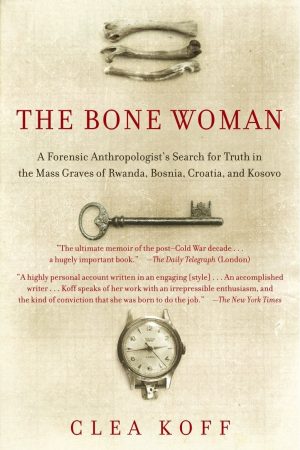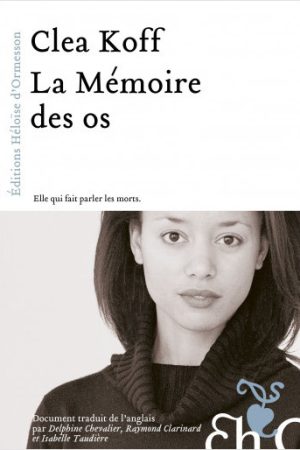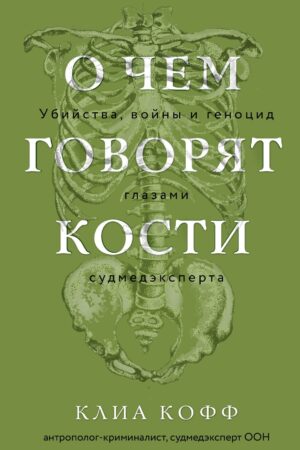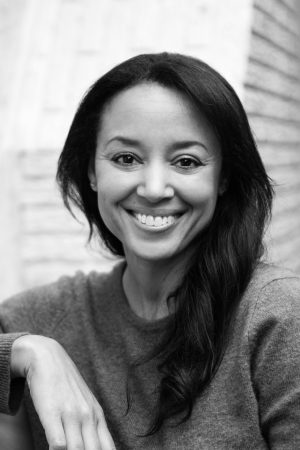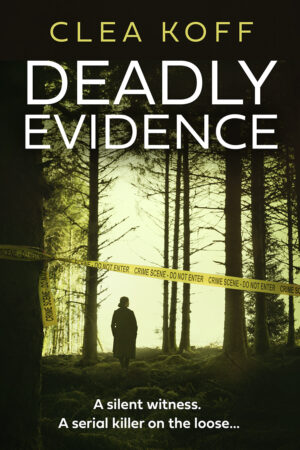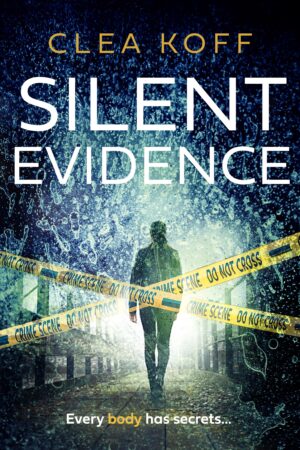The Bone Woman
A Forensic Anthropologist's Search for Truth in the Mass Graves of Rwanda, Bosnia, Croatia, and Kosovo
In 1994, Rwanda was the scene of the first acts since World War II to be legally defined as genocide. Two years later, Clea Koff, a twenty-three-year-old forensic anthropologist, left the safe confines of a lab in Berkeley, California, to serve as one of sixteen scientists chosen by the United Nations to unearth the physical evidence of the Rwandan genocide. Over the next four years, Koff’s grueling investigations took her across geography synonymous with some of the worst crimes of the twentieth century.
The Bone Woman is Koff’s unflinching, riveting account of her seven UN missions to Bosnia, Croatia, Kosovo, and Rwanda, as she shares what she saw, how it affected her, who was prosecuted based on evidence she found, and what she learned about the world. Yet even as she recounts the hellish nature of her work and the heartbreak of the survivors, she imbues her story with purpose, humanity, and a sense of justice. A tale of science in service of human rights, The Bone Woman is, even more profoundly, a story of hope and enduring moral principles.
Request more informationCovers
Original Language
ENGLISH (US & Canada) | Random House
ENGLISH (UK) | Grove Atlantic
ENGLISH (ANZ) | Hodder Headline
ENGLISH (Audio) | Dreamscape Media
Translation Rights
FRENCH | Héloïse D'Ormesson
RUSSIAN | Eksmo
Reviews
"It may be that this is the ultimate memoir of the post-Cold War decade (...) a hugely important book." The Telegraph
“The beauty and significance of Koff’s work and of her drive to do it come through most powerfully when she is crouching over a mass grave, untangling limbs, scraping dirt from a corpse’s clothes and finding, within what most of us would see as horror, something human that speaks. Surprising, compelling, and worth reading.” The Washington Post Book World
“Only Koff herself can explain what happens in the heart when the living meet the dead. . . . [The Bone Woman relives] what a good many people cannot imagine ever enduring. (...) Koff’s seven ‘missions’ into fields of death erase all qualitative differences between horrors dreamed and horrors unearthed.” Los Angeles Times
“Koff knows that bones talk, and she simply lets the bones she exhumes give testimony. . . . In descriptions free of sensationalism or sentimentality, [this] emotional distance gives The Bone Woman its pared-down power.” NPR’s Fresh Air
“A highly personal account written in an engaging [style] . . . An accomplished writer . . . Koff speaks of her work with an irrepressible enthusiasm, and the kind of conviction that she believes she was born to do the job.” The New York Times
"Fascinating...The overriding impression is of a woman deeply committed to ideals of justice and human rights. In consequence, and despite the extraordinary depravity of the crimes detailed in its pages, The Bone Woman is a humane, hopeful, and involving book." The Guardian
"This is a brave book, presented in a clear voice by a scientist who is confident that her missions will get to the truth and yet human enough to cry at the horror of it all." Library Journal
“Every detail — the marbles in a dead boy's pocket — seems to tell the same story, of human suffering on a scale nearly too awful to contemplate. But with each Body that Koff can prove belonged to a non-combatant, it becomes easier to successfully prosecute charges of war crimes. Her work is the place where science, idealism and humanism most intersect.” The Independent on Sunday
“Thomas Keneally wrote about the awkwardness of "good" as a literary subject. It is harder to make interesting than evil ... but sometimes he concluded, you find yourself staring at good in the face and just have to recognise it. So it is with The Bone Woman.” The Times
“Her book — indeed, her life — is a testament to an idealism that shines through a grim, bloody reality.” The Glasgow Herald
“Part science, part expose, part personal narrative, The Bone Woman offers a rare insight into both the role of a forensic anthropologist, and the role of the UN tribunal's forensic team ... Yet, for all its forensic detail, it is Koff's deep sense of connection to the bodies she came to exhume, her unflinching sense of obligation to them, and her willingness to look at what they represent, that renders The Bone Woman compelling reading.” Sunday Times (Perth)
